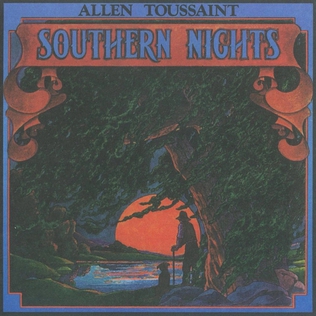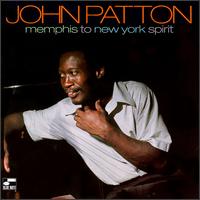
The Meters are an American funk band formed in 1965 in New Orleans by Zigaboo Modeliste (drums), George Porter Jr. (bass), Leo Nocentelli (guitar) and Art Neville (keyboards). The band performed and recorded their own music from the late 1960s until 1977 and played an influential role as backing musicians for other artists, including Lee Dorsey, Robert Palmer, Dr. John, and Allen Toussaint. Their original songs "Cissy Strut" and "Look-Ka Py Py" are considered funk classics.

Rejuvenation is the fifth studio album by the New Orleans funk group The Meters. It was released in 1974. In 2003, the album was ranked number 138 on Rolling Stone magazine's list of the 500 greatest albums of all time, and 139 in a 2012 revised list.

The Wild Tchoupitoulas is a 1976 album by the New Orleans Mardi Gras Indian tribe the Wild Tchoupitoulas. While not a commercial success, the effort was well received critically and the experience recording it encouraged the four Neville brothers to perform together for the first time as a group.

Look-Ka Py Py is the second studio album by the American funk group The Meters. The instrumental album was ranked number 218 on the Rolling Stone list of 500 Greatest Albums of All Time in 2003, 220 on the 2012 revised list and 415 on the 2020 revised list.

Joseph "Ziggy" Modeliste, also known as Zigaboo Modeliste, is an American drummer best known as a founding member of the funk band the Meters. He is widely considered an innovator in the funk genre and New Orleans style drumming. The Meters' music had a defining role and set the stylistic tone of New Orleans funk. Due to his work with the band, Modeliste is credited as an integral part of bringing New Orleans second-line grooves into popular music.

The Meters is the debut album by the American funk group The Meters. It was released in May 1969, the first of eight albums by the band. The band's early works were developed through improvisation. Band members had spent most of the 1960s performing together in nightclubs of New Orleans. They had a fluid musical style that included elements of R&B, rock, and jazz.

Struttin' is the third studio album by the funk group The Meters. It is the band's first album featuring vocal performances.

Cabbage Alley is the fourth studio album by the funk group the Meters, produced by Allen Toussaint and Marshall Sehorn and released in May 1972 by Reprise Records. It was the band's first album for the label, following the demise of Josie Records a year earlier, and the signing afforded the group a higher recording budget and re-introduced organist and keyboardist Art Neville to the lineup, having briefly left the band some time earlier.

Fire on the Bayou is the sixth studio album by the funk band The Meters.

Trick Bag is the seventh studio album by the funk group The Meters. The name comes from their cover of the Earl King single of the same name.

Fiyo on the Bayou is the second studio album by the New Orleans four piece the Neville Brothers. It was released in 1981 on A&M.

Desitively Bonnaroo is a 1974 album by the New Orleans rhythm and blues musician Dr. John. The album was produced by Allen Toussaint and features sizable musical support from The Meters. The album mines the territory featured on his previous album In The Right Place. This album spent eight weeks on the Billboard 200 charts, peaking at #105 on June 1, 1974.

Southern Nights is a 1975 R&B concept album by Allen Toussaint. Seminal to the development of New Orleans R&B, Toussaint incorporated into the album elements of funk and soul music, while, according to AllMusic, suggesting neo-psychedelia. Two singles were released in support of the album, "Country John" backed with "When the Party's Over" and "Southern Nights"—Toussaint's signature song—backed with "Out of the City". Although neither single charted for Toussaint, "Southern Nights" as later covered by Glen Campbell in 1977 reached number one in Billboard's country, pop and adult contemporary charts. Released in May 1975 by Reprise Records, the album has been subsequently reissued multiple times on both LP and CD.

Kickback is a collection of rare and unreleased material by the funk group the Meters.

Uptown Rulers: The Meters live on the Queen Mary is a live album by the funk group The Meters recorded on March 24, 1975. It was recorded at the Venus and Mars album release party hosted by Linda and Paul McCartney on board the Queen Mary ship. It captures the band's live sound at their peak in the mid 1970s. It is the only live recording of the band from that period.

Zony Mash is an album of vintage rarities and non-album B-sides by the funk group The Meters. The album consists of 13 tracks of the band's early works with Josie Records from 1968 to 1971. Eight tracks were originally released as singles, and five tracks were released as bonus tracks on re-issue albums.

Funkify Your Life: The Meters Anthology is a compilation album by the funk group The Meters. The album was released in 1995 by Rhino Records. It is a comprehensive compilation of the band's work.

The Best of the Meters is a compilation album by the funk group The Meters released in 1975. All tracks had been previously released as singles.

Carryin' On is an album by American jazz guitarist Grant Green featuring performances recorded in 1969 and released on the Blue Note label. The album marked Green's return to the Blue Note label and embracing a jazz-funk style that he would play for the rest of his life.

Memphis to New York Spirit is an album by American organist John Patton recorded in 1969 and 1970 but not released on the Blue Note label until 1996.




















